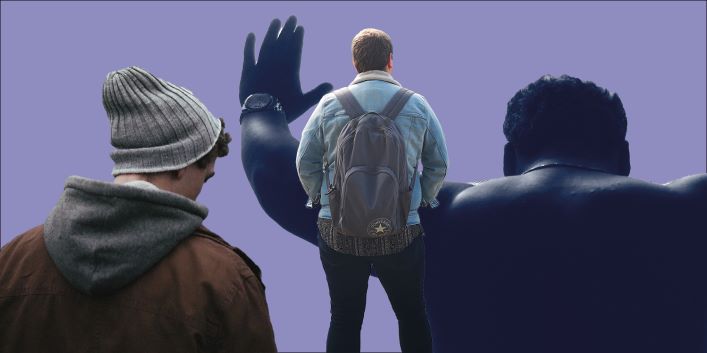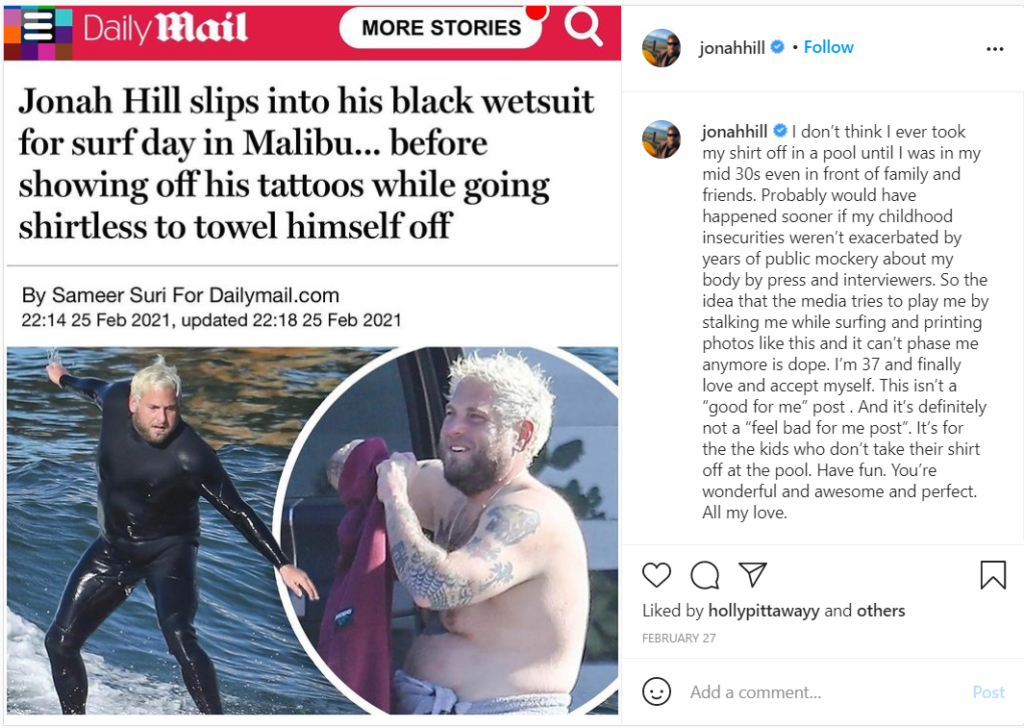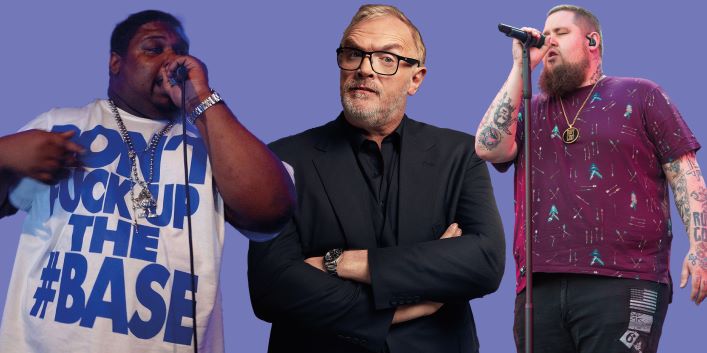The conversation around men’s bodies has been too one-sided for too long, and plus-sized men are being consistently left out of it

He turns on his laptop, and opens a browser. He navigates to a clothing website, and spends the next half an hour searching, with increasing desperation, for a model that looks like him. Disheartened, he gives up, and tries another online store – but to no avail. He tries another, and another, and another, until he is forced to close his laptop completely, his mind swimming with thoughts of loathing and self-doubt. He’ll just have to stick to his old, ill-fitting clothes for now.
This is the reality for many plus-sized men in the UK, and yet the issue is seldom discussed. For years, plus-sized men have been stigmatised: they have been the butt of endless jokes in Hollywood films, are constantly told to lose weight, and have been the subject of consistent fat-shaming in the tabloid media. The past few years have seen a rise in body positivity movements among women, but men are being left behind – and that’s something that needs to change.
Shirtless pride
The conversation around plus-sized men was brought to the fore in February this year, when actor Jonah Hill took to Instagram to call out The Daily Mail for fat-shaming him in an article published on the newspaper’s website.
In his response, Hill wrote: “I don’t think I ever took my shirt off in a pool until I was in my mid-30s, even in front of family and friends. Probably would have happened sooner if my childhood insecurities weren’t exacerbated by years of public mockery about my body by press and interviewers.” He added that his post was not for himself, but “for the kids who don’t take their shirt off at the pool … [who are] awesome and perfect.”

Despite his optimism, it’s clear that media comments about his weight severely affected Hill in his former years – and he is far from alone. A survey carried out in July 2020 by the UK’s Women and Equalities Select Committee revealed that 61% of adults feel negative or very negative about their body most of the time, and 57% feel their body type is rarely or never represented in the media. A study from the Mental Health Foundation in 2019 found that almost one in 20 men surveyed said they had “deliberately hurt themselves because of body image issues” – and the mental health issues do not stop there.
Feeling blue
One of the most common mental health problems caused by body image issues is low self-esteem. 20-year-old Paul Oluwadare says his self-esteem “is affected massively, because [men] are basically told that if we don’t have muscles [we are seen as] unattractive and undesirable … which makes it harder to talk to women sometimes.”
Paul also struggles when shopping for clothes: he feels that he is subconsciously judged by staff and other members of the public for his size, saying that some people “give you [a] subtle look or don’t do something [as a way of] showing you they’re judging you, rather than simply telling you.”
He’s also aware of rarely seeing his body type represented by models in the fashion industry, and feels that more male-orientated campaigns within the industry could help to change it: “Once you do that more often and consistently,” he says, “more men would be [more] comfortable wearing more adventurous outfits, or shopping without the fear of being judged on a subconscious level.” The problem, then, lies not with men, but with the industries that are supposed to be serving them.
A skewed perspective
The stigma around plus-sized men has resulted in a lack of role models within the mainstream media, and a subsequent skewing of what men typically look like. Rees Crawford, lead trainer at Elite Outdoor Fitness Academy, feels that this lack of representation has damaged how the public perceives larger men: “I know there are singers and musicians who are a bit on the larger side, and people sit there and go, ‘ooh he’s a bit big,’ he says.
“In realistic terms,” he adds, “they’re actually not: people are just used to [only seeing] skinny and shredded men [on television]” – something he feels is “quite unhealthy.” Rees also thinks it is wrong for companies to not cater to the male plus-sized market, but thinks a lot of fashion moguls are “scared to advertise” because of how plus-sized men have been historically treated.

He is quick to disagree with modelling agency Wilhelmina, who told Alt.Cardiff the company believed there was not a market for plus-sized male models in the UK. “There is definitely a market there,” Rees stresses, “as proven by Jacamo and other brands.” Jacamo launched in 2007 with a focus on catering to the plus-sized market, and has since been a champion for the men who have so long been ignored by other brands.
Research carried out by Jacamo in 2019 found that nearly half of men surveyed found clothing sizes inconsistent between brands, while nearly a third felt that the fashion industry needed to do more to cater for men’s varying body shapes. It’s clear that something within the fashion industry needs to change – but what’s being done about it?
The oncoming storm
Rees feels that change starts with conversation and, further down the line, normalisation. Social media, he says, can make this really difficult to start, citing the differences in the way skinny and larger men are treated on sites such as Instagram. “I think [the hardest part] is being the first person to make that comment of, ‘This is how I feel when people make little remarks [about my size], or when I don’t feel supported by certain clothing brands,’” he explains.
While men have traditionally struggled to open up about their feelings and worries, it is past time we fixed that: as Rees puts it, “It’s about speaking and listening and understanding.” Change occurs when people understand each other’s needs, and once we do that, there’s no telling how far we can go. For plus-sized men, the revolution is just beginning.
